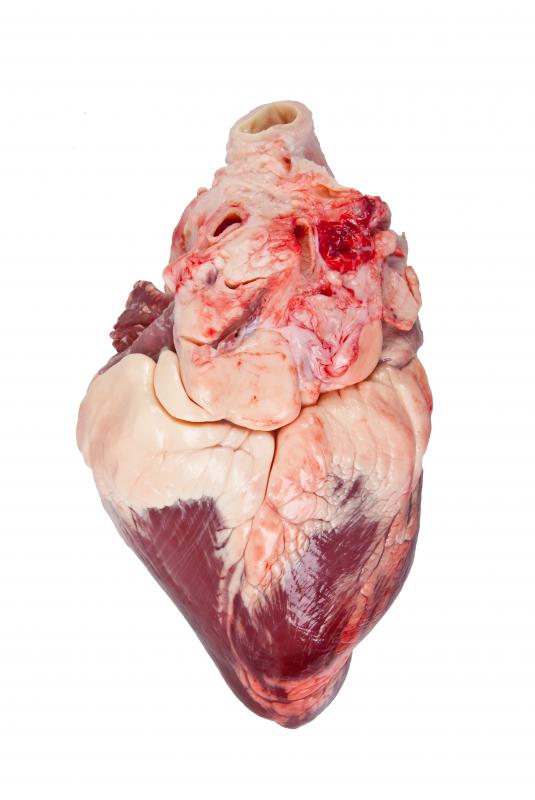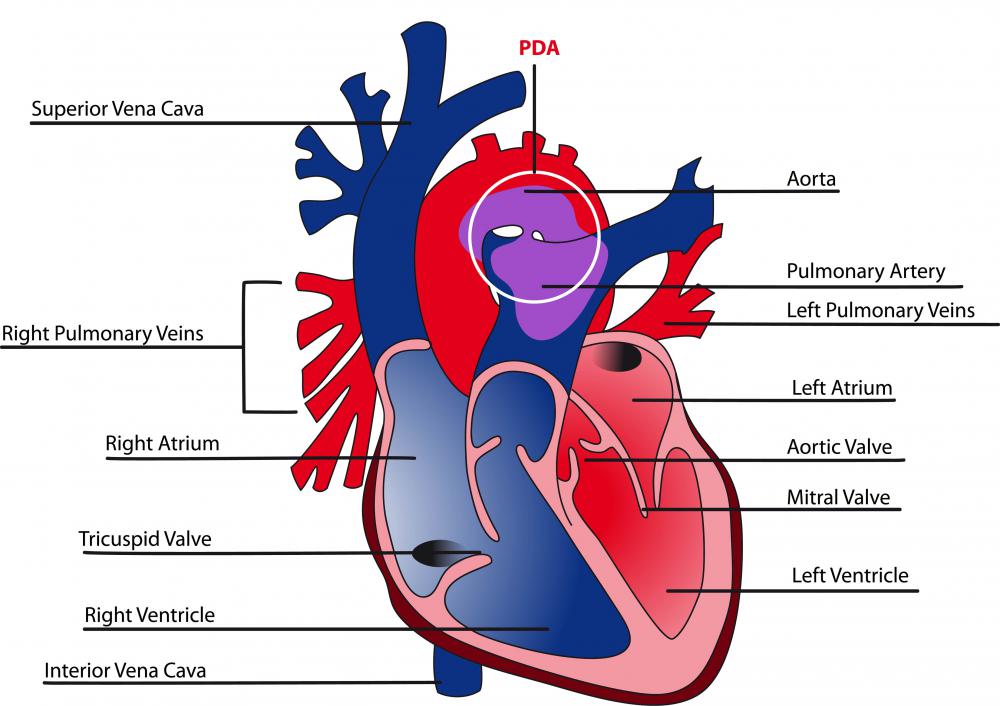At WiseGEEK, we're committed to delivering accurate, trustworthy information. Our expert-authored content is rigorously fact-checked and sourced from credible authorities. Discover how we uphold the highest standards in providing you with reliable knowledge.
What Is the Connection between Diet and Heart Disease?
There is a direct correlation between diet and heart disease. Unhealthy eating habits contribute to clogged arteries and obesity, which are risk factors for developing heart disease. The relationship between a poor diet and heart disease can be broken by a healthy eating plan.
Foods that are high in "bad" cholesterol, which is also known as low-density lipoproteins (LDL), cause plaque buildup in the arteries. This ultimately leads to the arteries becoming more and more narrow. One condition that plaque buildup causes is atherosclerosis. The fatty deposits that cause atherosclerosis cause the artery walls to thicken and block the blood from flowing. This leads to heart disease.

Coronary artery disease, which is a form of heart disease, is caused by elevated levels of bad cholesterol, which can result in clogged arteries. Some foods that are high in bad cholesterol are meats. Both pork and beef are high in LDL and should be consumed in moderation. Meats such as turkey and venison are lower in bad cholesterol than both pork and beef. Eggs, butter and greasy foods such as french fries are also high in bad cholesterol.

A diet that is high in sodium can also contribute to heart disease. Sodium has a negative impact on blood pressure and can be a cause of hypertension or make it worse for those already living with hypertension. In due course, this condition leads to heart disease.
Obesity is a cause of heart disease. Not only does obesity cause heart disease, it also increases both the severity and the chance of other factors of heart disease, including high blood pressure and diabetes. Eating excessive amounts of unhealthy, fattening foods such as fast foods can lead to obesity. Foods that are high in simple carbohydrates, such as refined white bread, sugars and fats, can all increase a person's weight and lead to obesity.
Individuals who have diabetes are also prone to developing heart disease. When a person manages his or her weight and sugar intake, a decrease in the chance of diabetes occurs. This ultimately decreases the likelihood of developing heart disease.

Monitoring the foods one consumes can contribute to a decrease in weight and a decreased chance of developing heart disease. Weight management is a key to lowering the risk factors of heart disease. Eating low-fat foods such as fresh vegetables and fruits lessens one's chance of developing heart disease and related diseases, such as hypertension. For example, high-fiber diets benefit a person's heart health.

A proper diet and heart health go hand-in-hand. In the same way, a poor diet and heart disease go together. Overall, an unhealthy diet and heart disease often coincide because diet is a leading factor in the causes of certain heart diseases and their contributing factors.
AS FEATURED ON:
AS FEATURED ON:


















Discussion Comments
Heart disease and the diet are strongly related. Diet can especially affect the way your veins and arteries repair themselves. Stress causes damage to the interior walls of the veins and arteries and one of the ways the body heals those tears is to fill them in with fat stored in your body. Bad fats that cause high cholesterol have the tendency to clog veins and arteries over time. Good fats like Omega 3 fatty acids fill the tears more seamlessly and you would be less likely to have clogged arteries as a result.
Post your comments